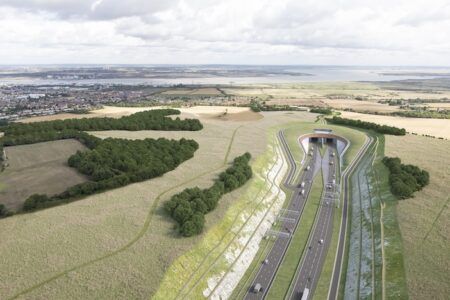The Biden-Harris Administration has opened applications for a new US$2.5bn program to fund EV charging and alternative-fueling infrastructure in communities across the USA and along designated highways, interstates, and major roadways.
According to the administration, the program is a key step toward the President’s goals of building a national network of 500,000 public EV charging stations and reducing national greenhouse gas emissions by 50-52% by 2030.
The US Department of Transportation’s new Charging and Fueling Infrastructure (CFI) Discretionary Grant Program, established by the Bipartisan Infrastructure Law, will provide US$2.5bn over five years to a wide range of applicants, including cities, counties, local governments, and Tribes.
This round of funding makes up to US$700m from fiscal years 2022 and 2023 funding available to strategically deploy EV charging and other alternative vehicle-fueling infrastructure projects in publicly accessible locations in urban and rural communities, as well as along designated Alternative Fuel Corridors (AFCs).
“By helping bring EV charging to communities across the country, this administration is modernizing our infrastructure and creating good jobs in the process,” said US transportation secretary Pete Buttigieg. “With today’s announcement, we are taking another big step forward in creating an EV future that is convenient, affordable, reliable, and accessible to all Americans.”
The CFI Discretionary Grant Program builds on the US$5bn National Electric Vehicle Infrastructure (NEVI) Formula Program, for which the Federal Highway Administration (FHWA) published finalized minimum standards earlier this month. EV chargers constructed with CFI funds must adhere to those same standards, a requirement that supports a consistent charging experience for users and ensures that the national charging network is convenient, reliable and Made in America.
“Extending EV charging infrastructure into traditionally underserved areas will ensure that equitable and widespread EV adoption takes hold,” said US secretary of energy Jennifer M Granholm. “Ensuring that charging stations are more visible and accessible in our communities addresses the concerns many American drivers have when considering making the switch to electric.”
A priority of the CFI Program is bringing EV charging into urban and rural communities, downtown areas, and local neighborhoods, particularly in underserved and disadvantaged communities, as well as to designated alternative fuel corridors.
The Bipartisan Infrastructure Law divides the CFI Program into two distinct grant funding categories, and requires that 50% of the funding over five years is made available for each:
The Community Program will provide US$1.25bn to strategically deploy publicly accessible EV charging infrastructure, and hydrogen, propane, or natural gas fueling infrastructure in communities. Infrastructure may be located on any public road or in other publicly accessible locations such as parking facilities at public buildings, public schools, and public parks, or in publicly accessible parking facilities owned or managed by a private entity.
The Corridor Program will provide US$1.25bn to strategically deploy publicly accessible EV charging infrastructure and hydrogen, propane, and natural gas fueling infrastructure along designated alternative fuel corridors (AFCs).
“FHWA is committed to helping towns and cities, large and small, build modern, sustainable infrastructure that promotes equity and opportunity for their local economies and net-zero emissions for the nation by 2050,” said Federal Highway administrator Shailen Bhatt. “By encouraging the adoption and expansion of EV charging and alternative fuels, CFI Program investments have the potential to significantly address the transportation sector’s outsized contributions to climate change.”
Eligible applicants and projects for both categories are outlined in a Notice of Funding Opportunity published here. Applications are due by May 30, 2023.





